12 Plant Powerhouses Packing Serious Protein Punch
In recent years, the culinary world has witnessed a transformative shift, with plant-based diets taking the forefront of nutritional innovation. As the demand for sustainable and health-conscious eating grows, so does the exploration of plant proteins that can rival traditional meats in both taste and nutritional value. These proteins are not only a boon for vegetarians and vegans but also for anyone looking to diversify their diet with nutrient-rich alternatives. This article delves into the tantalizing tastes of 12 plant proteins, each offering unique flavors and textures that promise to delight the palate while supporting a balanced diet. From legumes to seeds, each of these plant proteins is explored in depth, showcasing their culinary versatility and health benefits. Join us as we embark on this flavorful journey into the world of plant-based proteins, where every bite is as satisfying as it is nourishing.
1. Lentils: The Versatile Powerhouse
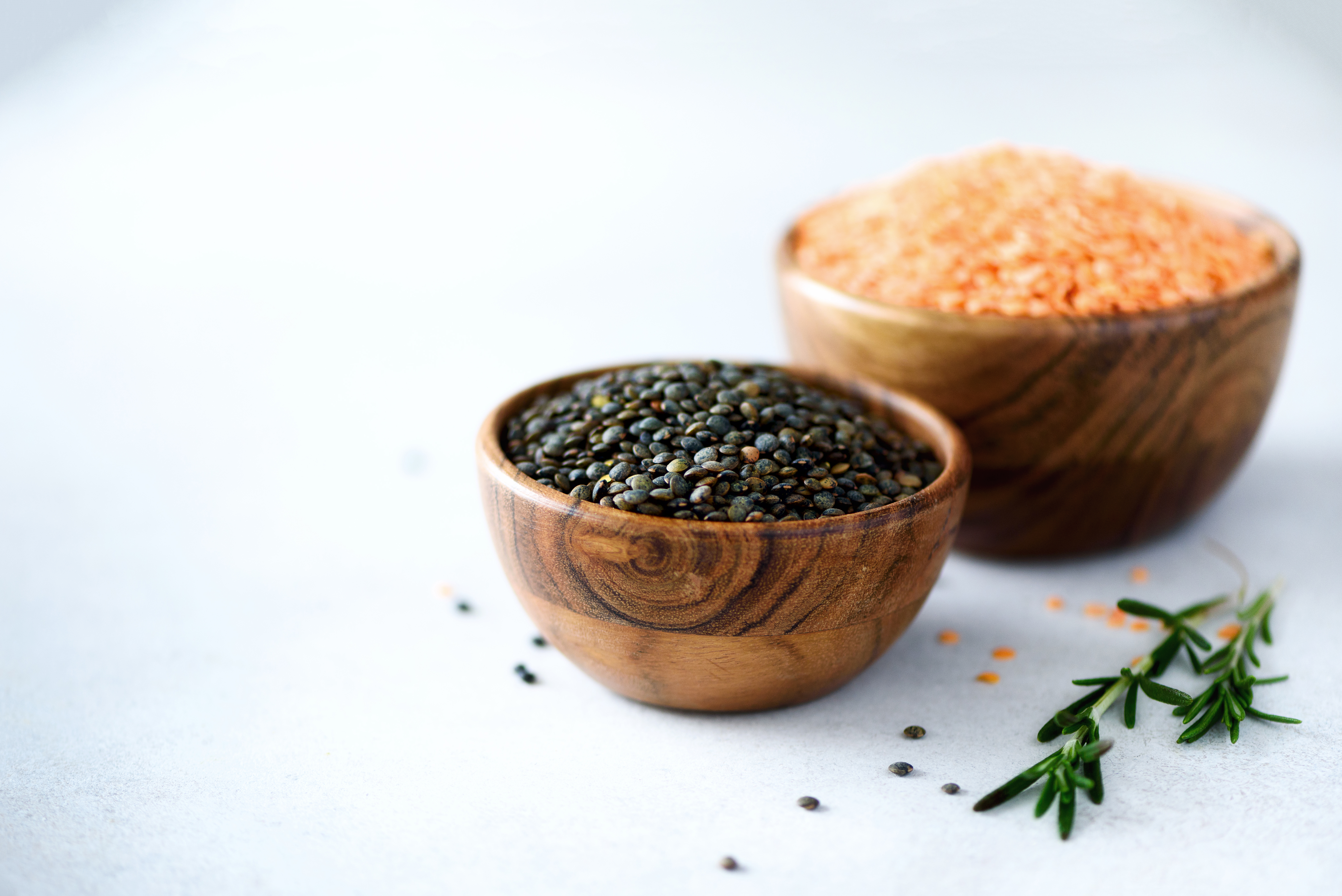
Lentils have long been a staple in diets across the globe, prized for their rich nutritional profile and culinary versatility. These small legumes pack a punch, offering a substantial amount of protein, fiber, and essential nutrients such as iron and folate. Lentils come in various colors and sizes, each with its own unique flavor and texture, making them suitable for a wide range of dishes. From hearty soups and stews to salads and curries, lentils can be transformed into a myriad of delicious meals that rival any meat-based dish. Their ability to absorb flavors makes them a perfect canvas for spices and herbs, enhancing their natural earthiness and creating a satisfying taste experience. In addition to their culinary appeal, lentils are an environmentally friendly protein choice. They require less water and energy to produce compared to animal proteins, making them a sustainable option for those looking to reduce their carbon footprint. Furthermore, lentils are a cost-effective protein source, making them accessible to a wide audience. Whether you're a seasoned chef or a home cook, incorporating lentils into your diet is a simple yet impactful way to enjoy the benefits of plant-based eating.
2. Chickpeas: The Culinary Chameleon
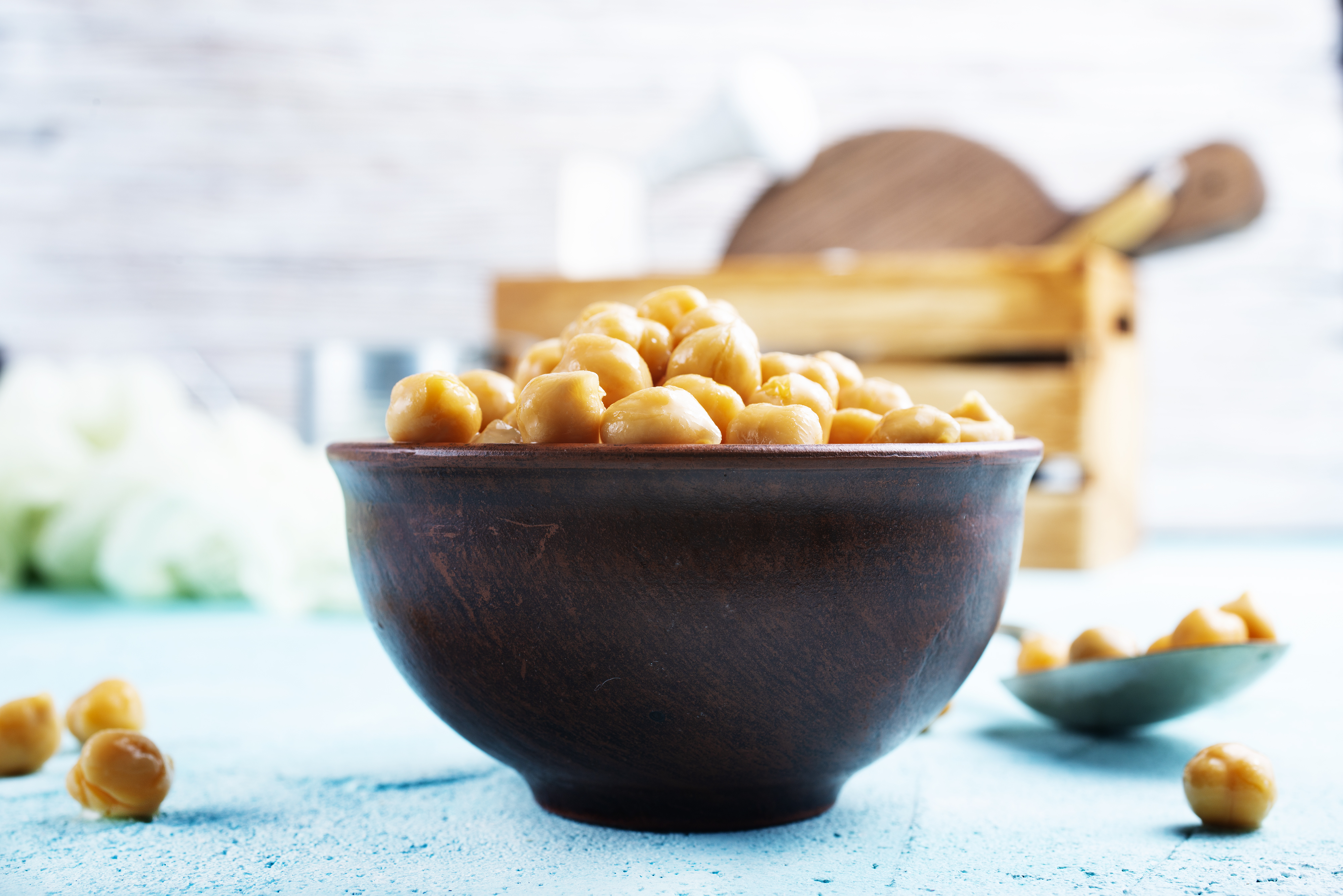
Chickpeas, also known as garbanzo beans, are another versatile legume that has gained popularity for their nutty flavor and creamy texture. These protein-rich beans are a staple in many cuisines, from Middle Eastern to Mediterranean, and are the main ingredient in beloved dishes such as hummus and falafel. Chickpeas are not only delicious but also incredibly nutritious, providing a good source of protein, fiber, and essential vitamins and minerals. Their ability to be transformed into various forms, such as flour or roasted snacks, makes them a culinary chameleon that can adapt to any dish. The versatility of chickpeas extends beyond their traditional uses. They can be roasted for a crunchy snack, blended into a creamy dip, or even used as a meat substitute in burgers and patties. Their mild flavor allows them to take on the taste of accompanying ingredients, making them a perfect base for experimenting with different spices and seasonings. As more people seek plant-based alternatives, chickpeas continue to shine as a delicious and nutritious option that can satisfy even the most discerning palates.
3. Quinoa: The Ancient Grain with Modern Appeal
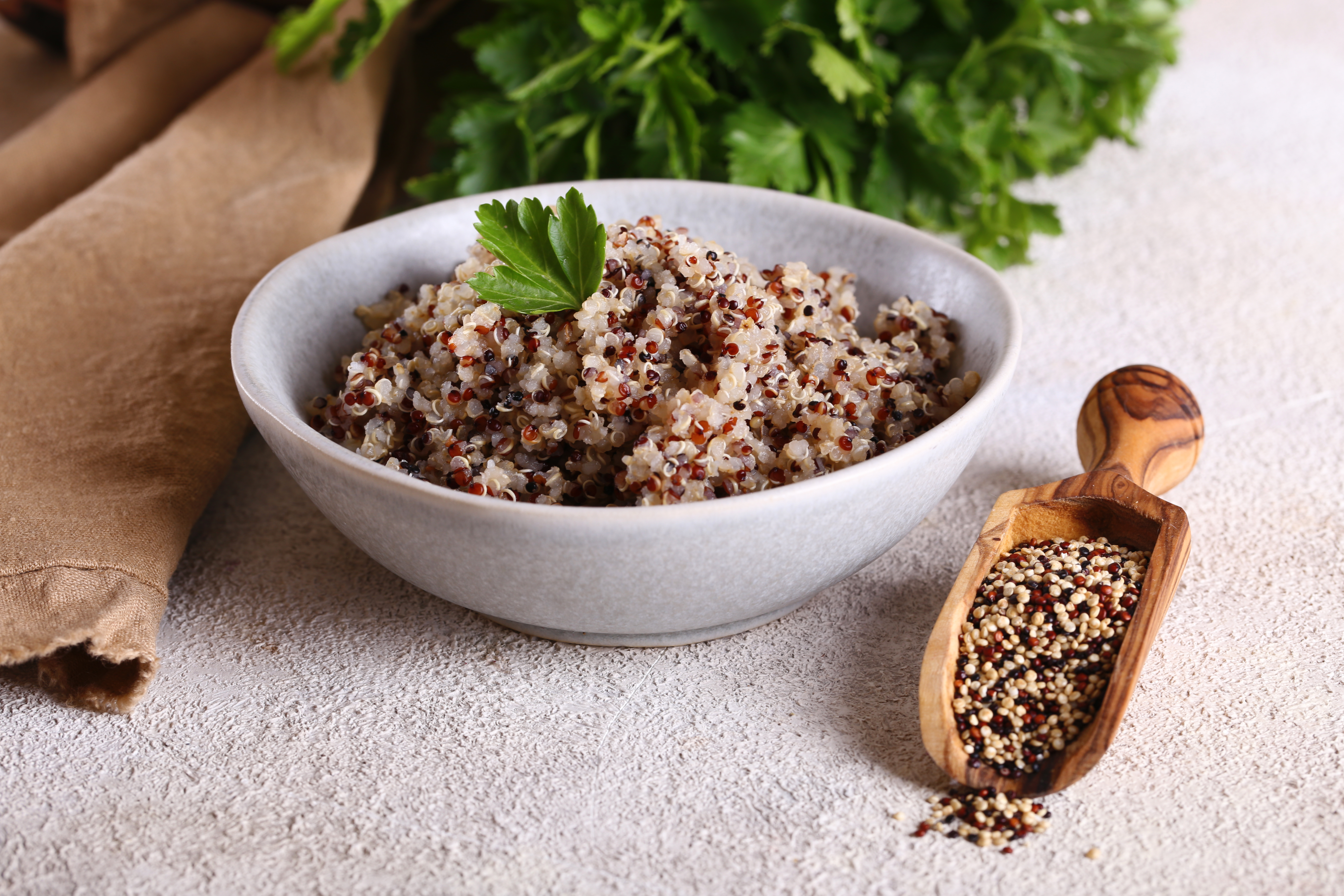
Quinoa, often referred to as a superfood, is an ancient grain that has gained modern appeal due to its impressive nutritional profile and versatility. Unlike many other grains, quinoa is a complete protein, containing all nine essential amino acids that the body cannot produce on its own. This makes it an excellent protein source for vegetarians and vegans. Quinoa's light, fluffy texture and slightly nutty flavor make it a versatile ingredient that can be used in both savory and sweet dishes. Quinoa's adaptability is one of its greatest strengths. It can be used as a base for salads, a substitute for rice or pasta, or even incorporated into baked goods for added nutrition. Its ability to absorb flavors makes it a perfect canvas for a variety of seasonings and ingredients, allowing for endless culinary possibilities. In addition to its taste and versatility, quinoa is also environmentally sustainable, requiring less water and energy to produce compared to traditional grains. As more people look for nutritious and sustainable food options, quinoa continues to stand out as a delicious and healthy choice.
4. Tofu: The Plant-Based Protein Staple
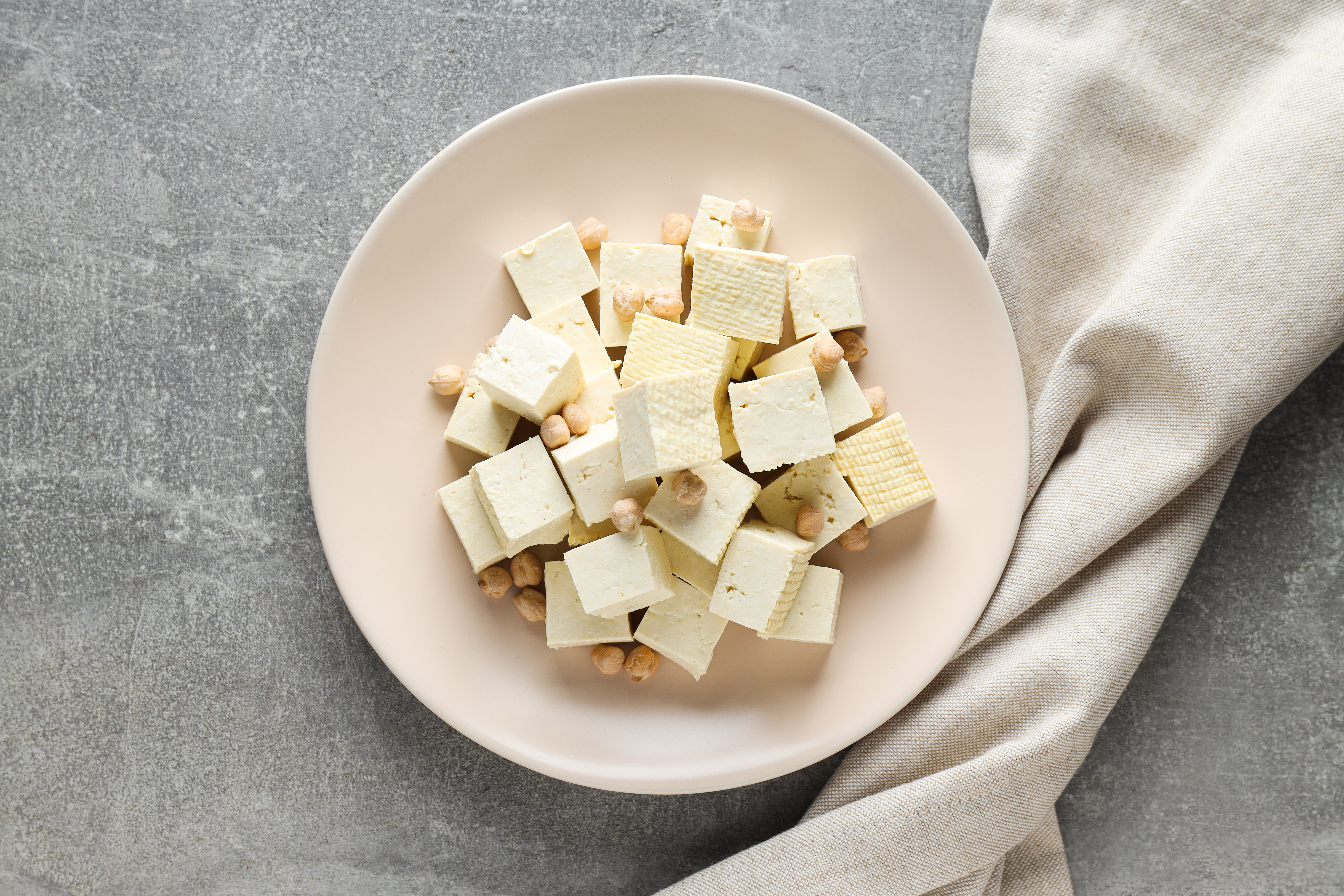
Tofu, also known as bean curd, is a staple in many plant-based diets due to its high protein content and versatility. Made from soybeans, tofu is a complete protein, providing all essential amino acids needed by the body. Its neutral flavor and ability to absorb seasonings make it a popular choice for a wide range of dishes, from stir-fries and soups to desserts and smoothies. Tofu's texture can vary from silky and smooth to firm and chewy, allowing it to be used in various culinary applications. The versatility of tofu is one of its greatest assets. It can be marinated, grilled, sautéed, or blended, making it suitable for a wide range of recipes. Its ability to take on the flavors of accompanying ingredients allows for endless creativity in the kitchen. In addition to its culinary appeal, tofu is also a sustainable protein choice, as soybeans require less water and energy to produce compared to animal proteins. As more people seek plant-based alternatives, tofu continues to be a popular and delicious option that can satisfy a variety of taste preferences.
5. Tempeh: The Fermented Marvel
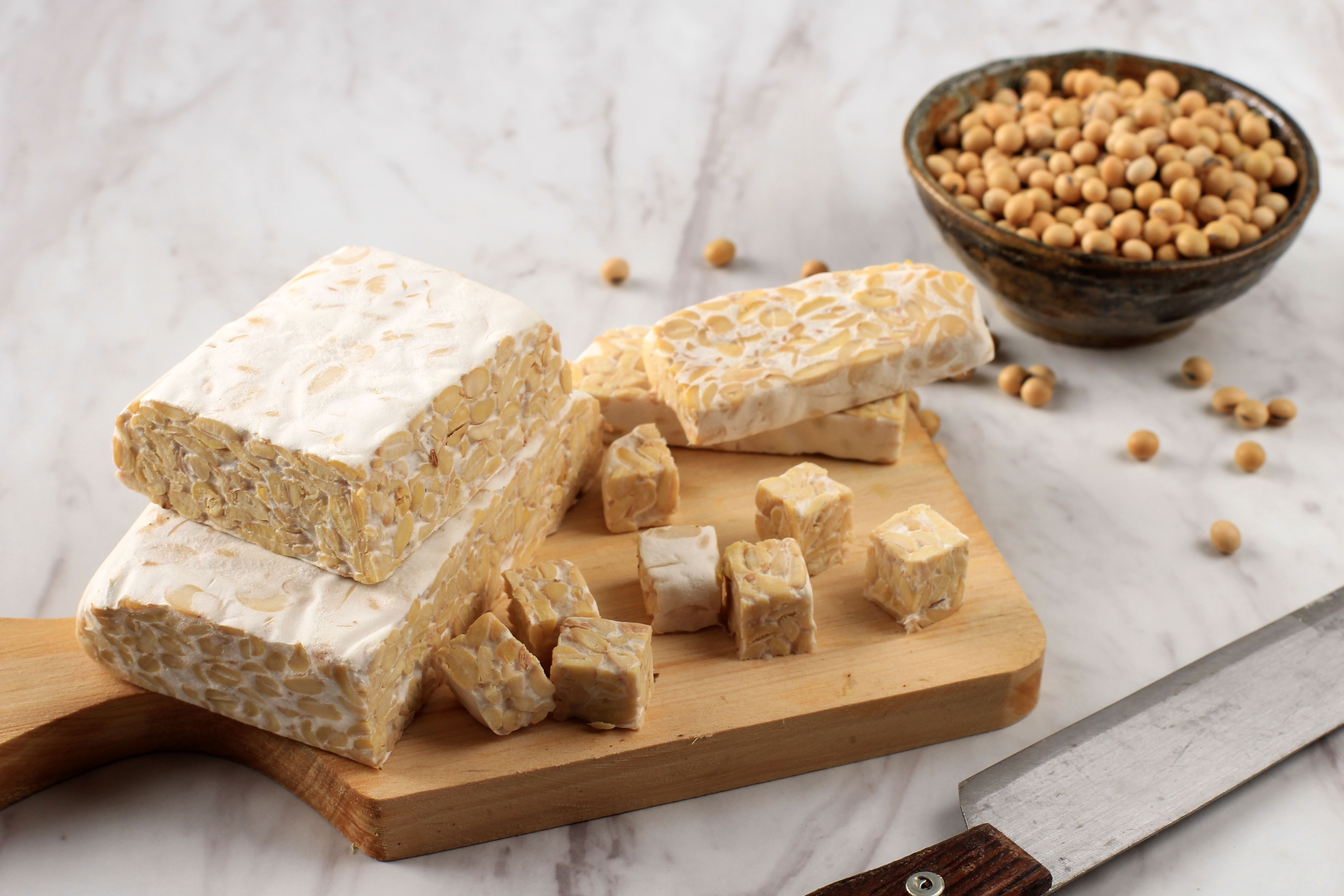
Tempeh, a traditional Indonesian food, is a fermented soy product that has gained popularity for its high protein content and unique flavor. Unlike tofu, tempeh is made from whole soybeans, which are fermented and pressed into a firm, cake-like form. This fermentation process not only enhances the nutritional profile of tempeh but also gives it a distinct nutty and earthy flavor. Tempeh's firm texture makes it an excellent meat substitute, and it can be used in a variety of dishes, from stir-fries and sandwiches to salads and stews. The fermentation process used to make tempeh also has additional health benefits, as it increases the bioavailability of nutrients and promotes gut health. Tempeh is a rich source of protein, fiber, and essential vitamins and minerals, making it a nutritious addition to any diet. Its ability to absorb flavors and its versatility in the kitchen make it a favorite among those seeking plant-based protein options. As more people explore the world of plant-based eating, tempeh continues to stand out as a delicious and healthy choice.
6. Seitan: The Wheat-Based Wonder

Seitan, often referred to as wheat meat, is a popular plant-based protein made from gluten, the protein found in wheat. Known for its meat-like texture and ability to mimic the taste and appearance of various meats, seitan is a favorite among vegetarians and vegans. It is a versatile ingredient that can be used in a variety of dishes, from stir-fries and sandwiches to stews and kebabs. Seitan's ability to absorb flavors and its chewy texture make it a satisfying meat substitute that can rival traditional meats in both taste and appearance. In addition to its culinary appeal, seitan is also a high-protein food, providing a substantial amount of protein per serving. Its low fat content and versatility make it a popular choice for those looking to reduce their meat consumption while still enjoying hearty and satisfying meals. Seitan's ability to mimic the texture and taste of meat makes it a valuable addition to any plant-based diet, offering a delicious and nutritious alternative to traditional animal proteins.
7. Edamame: The Green Protein Pods
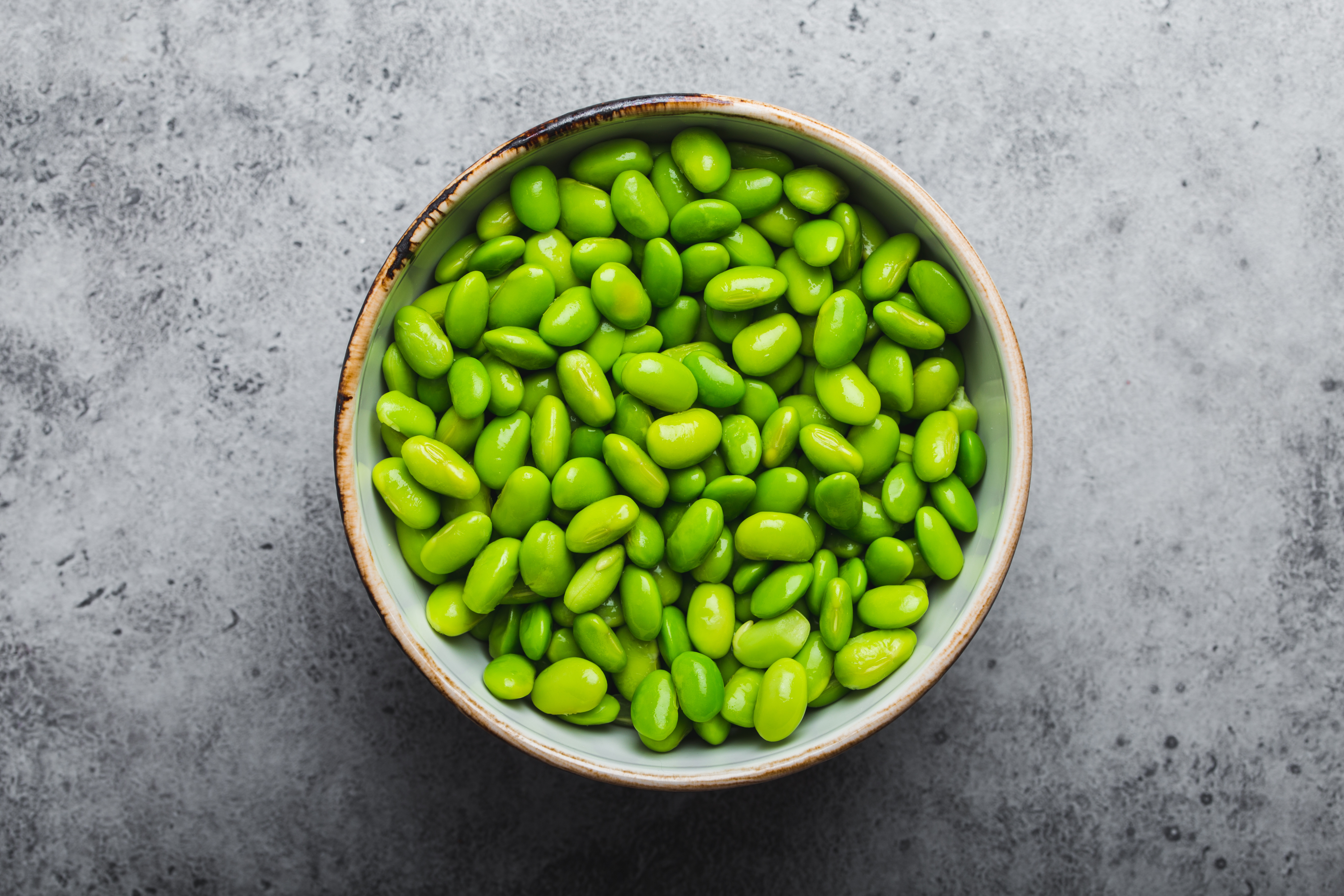
Edamame, young soybeans still in their pods, are a popular snack and ingredient in many Asian cuisines. These vibrant green beans are not only delicious but also packed with protein, fiber, and essential vitamins and minerals. Edamame's mild, slightly sweet flavor and firm texture make them a versatile ingredient that can be used in a variety of dishes, from salads and stir-fries to soups and snacks. Their vibrant color and nutritional benefits make them a favorite among those seeking healthy and delicious plant-based protein options. Edamame's nutritional profile is impressive, offering a good source of protein, fiber, and essential nutrients such as folate and vitamin K. They are also a low-calorie food, making them a healthy snack option for those looking to maintain a balanced diet. Edamame's versatility in the kitchen allows for endless creativity, as they can be seasoned with a variety of spices and herbs to suit different taste preferences. Whether enjoyed as a snack or incorporated into a meal, edamame is a delicious and nutritious plant-based protein that can rival traditional meats in both taste and nutritional value.
8. Black Beans: The Nutrient-Dense Delight
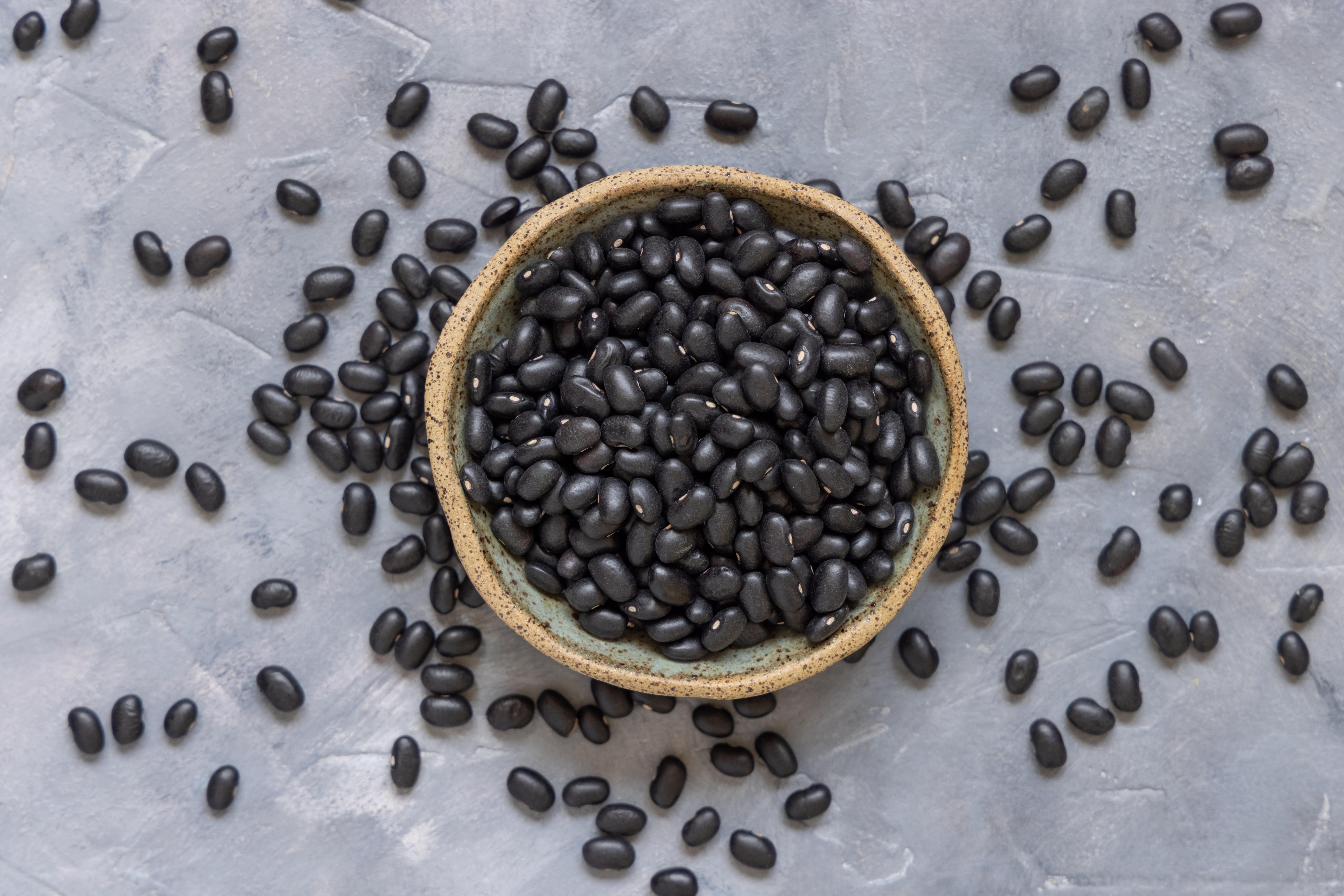
Black beans, a staple in many Latin American cuisines, are known for their rich, earthy flavor and creamy texture. These nutrient-dense legumes are an excellent source of protein, fiber, and essential vitamins and minerals, making them a valuable addition to any diet. Black beans are a versatile ingredient that can be used in a variety of dishes, from soups and stews to salads and burritos. Their ability to absorb flavors and their hearty texture make them a satisfying meat substitute that can rival traditional meats in both taste and nutritional value. In addition to their culinary appeal, black beans are also an environmentally sustainable protein choice. They require less water and energy to produce compared to animal proteins, making them a sustainable option for those looking to reduce their carbon footprint. Black beans' versatility in the kitchen allows for endless creativity, as they can be seasoned with a variety of spices and herbs to suit different taste preferences. Whether enjoyed in a traditional dish or incorporated into a new recipe, black beans are a delicious and nutritious plant-based protein that can satisfy even the most discerning palates.
9. Peas: The Humble Green Giant
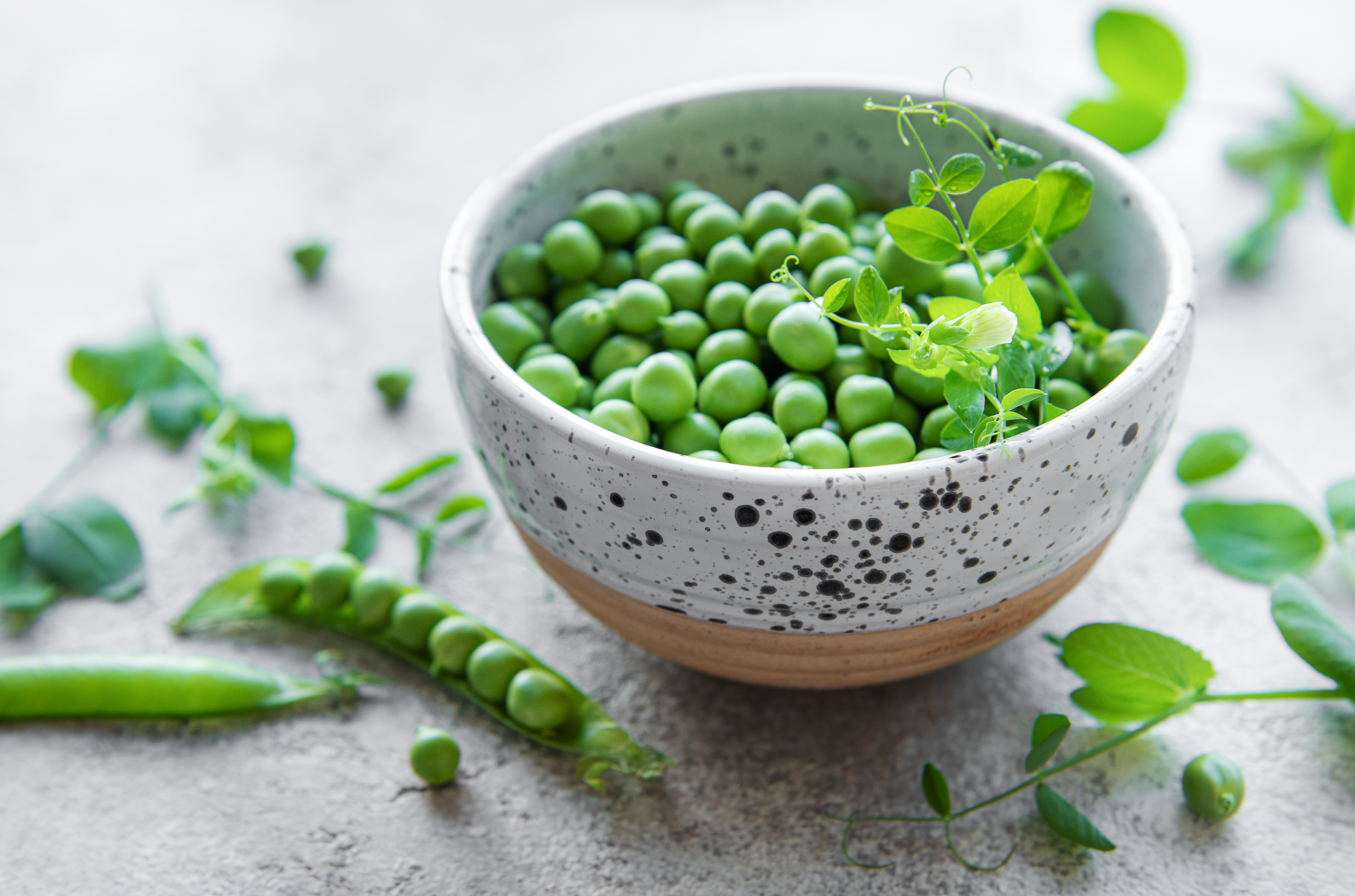
Peas, often overlooked as a simple side dish, are a powerhouse of nutrition and a versatile plant-based protein. These small, vibrant green legumes are packed with protein, fiber, and essential vitamins and minerals, making them a valuable addition to any diet. Peas' sweet, slightly grassy flavor and tender texture make them a versatile ingredient that can be used in a variety of dishes, from soups and stews to salads and stir-fries. Their ability to absorb flavors and their vibrant color make them a favorite among those seeking healthy and delicious plant-based protein options. In addition to their culinary appeal, peas are also an environmentally sustainable protein choice. They require less water and energy to produce compared to animal proteins, making them a sustainable option for those looking to reduce their carbon footprint. Peas' versatility in the kitchen allows for endless creativity, as they can be seasoned with a variety of spices and herbs to suit different taste preferences. Whether enjoyed as a side dish or incorporated into a main course, peas are a delicious and nutritious plant-based protein that can rival traditional meats in both taste and nutritional value.
10. Hemp Seeds: The Nutritional Powerhouse
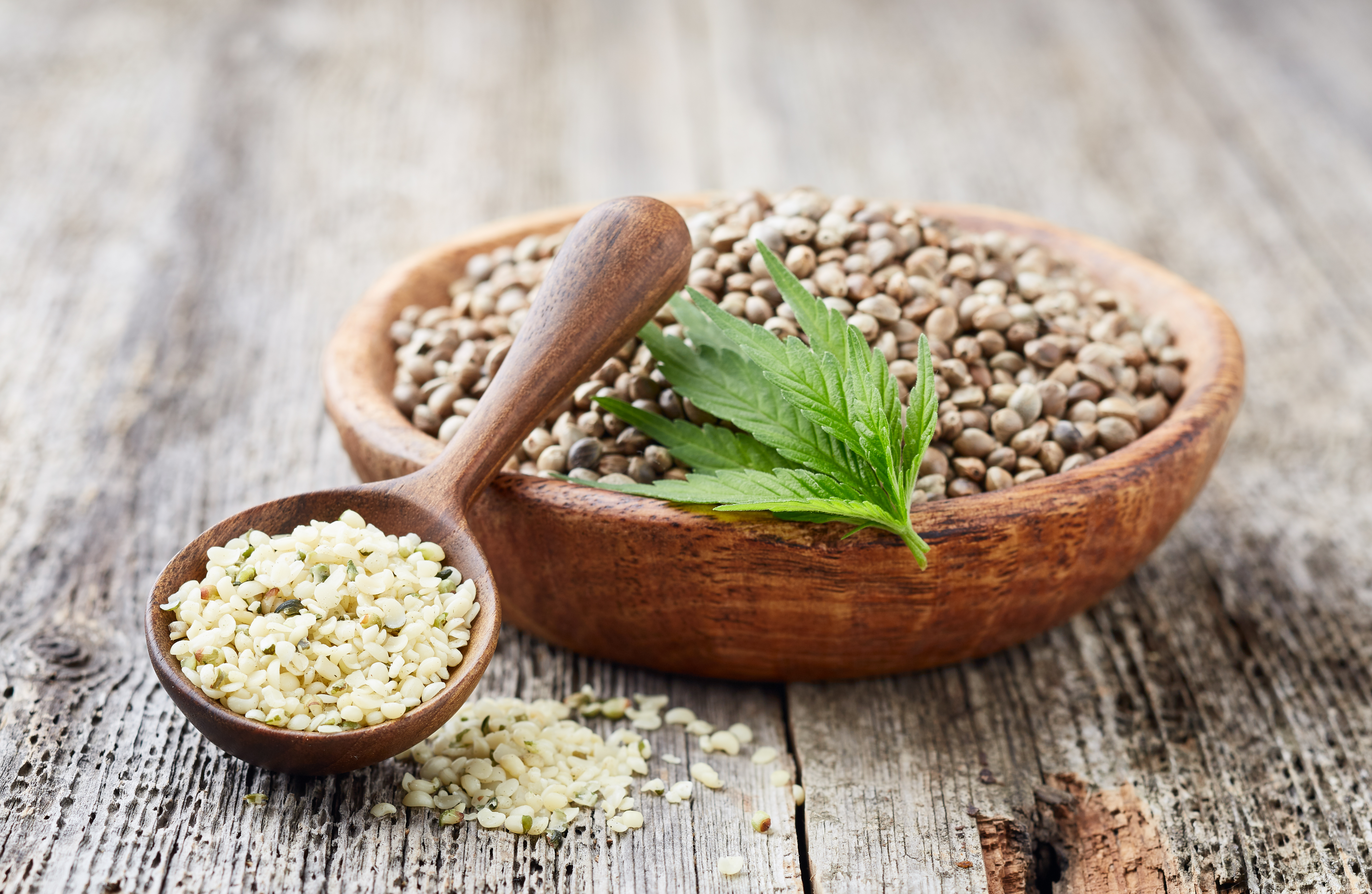
Hemp seeds, often referred to as hemp hearts, are a nutritional powerhouse packed with protein, healthy fats, and essential vitamins and minerals. These small, nutty seeds are a complete protein, containing all nine essential amino acids needed by the body. Hemp seeds' mild, nutty flavor and crunchy texture make them a versatile ingredient that can be used in a variety of dishes, from smoothies and salads to baked goods and snacks. Their impressive nutritional profile and culinary versatility make them a favorite among those seeking healthy and delicious plant-based protein options. In addition to their culinary appeal, hemp seeds are also an environmentally sustainable protein choice. They require less water and energy to produce compared to animal proteins, making them a sustainable option for those looking to reduce their carbon footprint. Hemp seeds' versatility in the kitchen allows for endless creativity, as they can be incorporated into a variety of dishes to add flavor and nutrition. Whether enjoyed as a topping or incorporated into a recipe, hemp seeds are a delicious and nutritious plant-based protein that can rival traditional meats in both taste and nutritional value.
11. Chia Seeds: The Tiny Nutritional Titan

Chia seeds, small but mighty, are a nutritional titan packed with protein, fiber, and essential omega-3 fatty acids. These tiny seeds have a mild, nutty flavor and a unique ability to absorb liquid and form a gel-like consistency, making them a versatile ingredient in a variety of dishes. Chia seeds can be used in smoothies, puddings, and baked goods, or as a topping for yogurt and salads. Their impressive nutritional profile and culinary versatility make them a favorite among those seeking healthy and delicious plant-based protein options. In addition to their culinary appeal, chia seeds are also an environmentally sustainable protein choice. They require less water and energy to produce compared to animal proteins, making them a sustainable option for those looking to reduce their carbon footprint. Chia seeds' versatility in the kitchen allows for endless creativity, as they can be incorporated into a variety of dishes to add flavor and nutrition. Whether enjoyed as a topping or incorporated into a recipe, chia seeds are a delicious and nutritious plant-based protein that can rival traditional meats in both taste and nutritional value.
12. Almonds: The Crunchy Protein Powerhouse
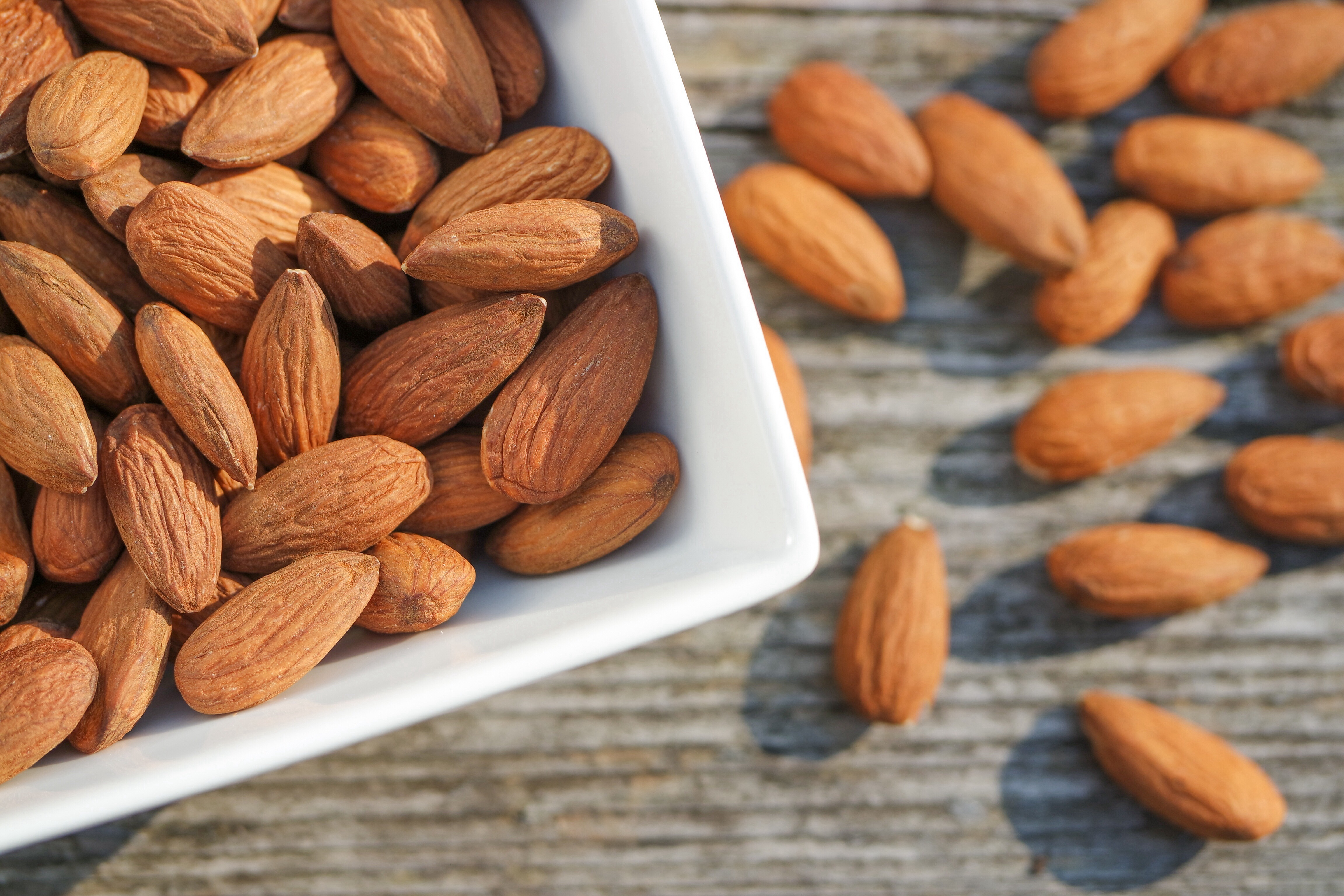
Almonds, a popular nut known for their crunchy texture and rich, nutty flavor, are a powerhouse of nutrition and a versatile plant-based protein. These nutrient-dense nuts are packed with protein, healthy fats, and essential vitamins and minerals, making them a valuable addition to any diet. Almonds can be enjoyed as a snack, used in baking, or incorporated into a variety of dishes, from salads and stir-fries to desserts and smoothies. Their impressive nutritional profile and culinary versatility make them a favorite among those seeking healthy and delicious plant-based protein options. In addition to their culinary appeal, almonds are also an environmentally sustainable protein choice. They require less water and energy to produce compared to animal proteins, making them a sustainable option for those looking to reduce their carbon footprint. Almonds' versatility in the kitchen allows for endless creativity, as they can be incorporated into a variety of dishes to add flavor and nutrition. Whether enjoyed as a snack or incorporated into a recipe, almonds are a delicious and nutritious plant-based protein that can rival traditional meats in both taste and nutritional value.
Embracing Plant Proteins for a Delicious Future
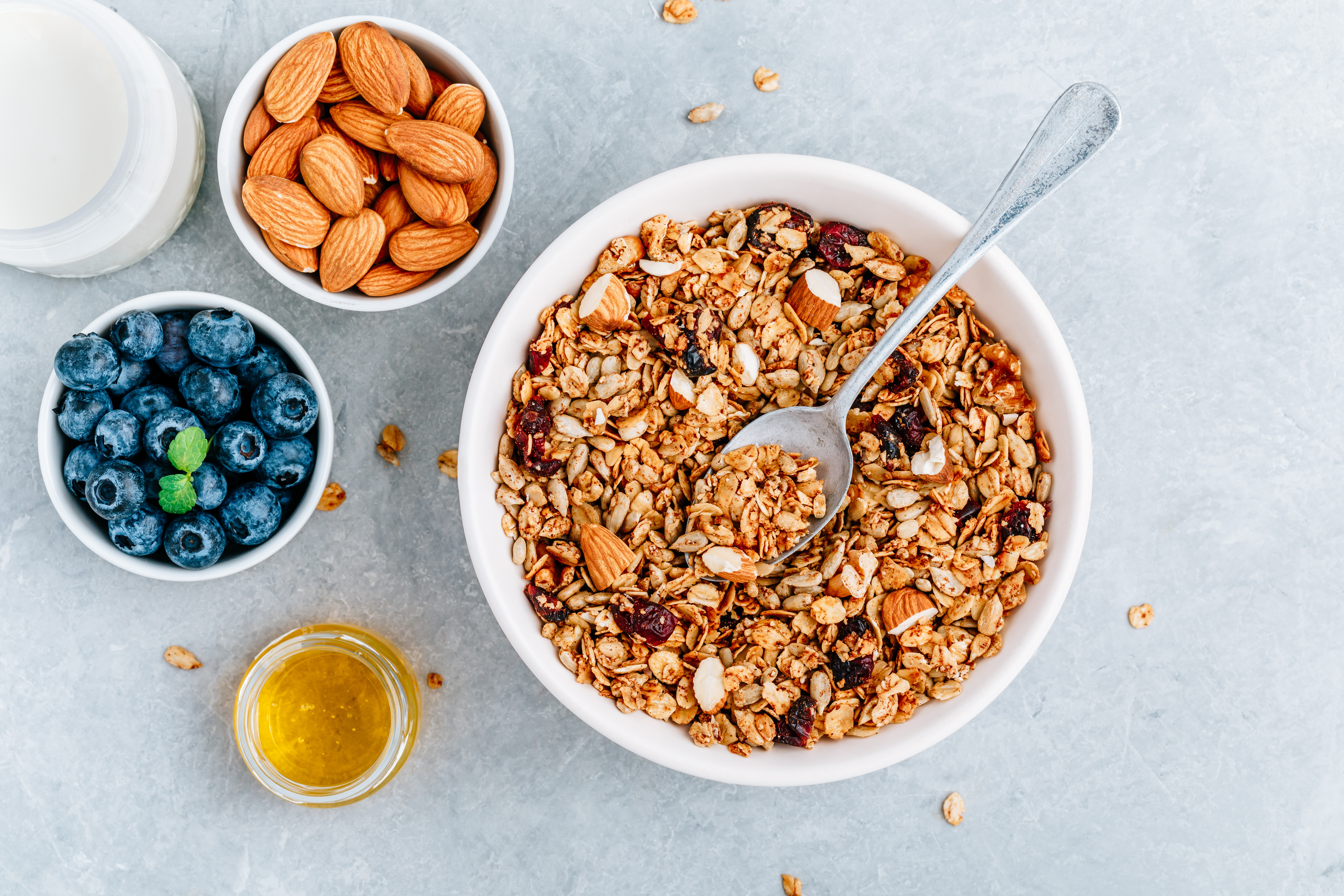
The exploration of plant proteins reveals a world of culinary possibilities that can rival traditional meats in both taste and nutritional value. From the versatile lentil to the superfood spirulina, each of these 12 plant proteins offers unique flavors, textures, and health benefits that make them a valuable addition to any diet. As the demand for sustainable and health-conscious eating continues to grow, so does the exploration of plant-based proteins that can satisfy even the most discerning palates. Embracing plant proteins is not only beneficial for personal health but also for the environment, as they require less water and energy to produce compared to animal proteins. By incorporating these delicious and nutritious plant-based proteins into our diets, we can enjoy a diverse array of flavors and textures while supporting a more sustainable and healthy future. Whether you're a seasoned chef or a home cook, the tantalizing tastes of plant proteins offer endless culinary possibilities that promise to delight the palate and nourish the body.
